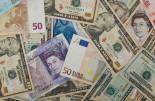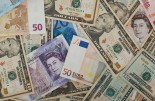Monex: Euro trekt aan door optimisme markten
Monex: Euro trekt aan door optimisme markten

Hieronder volgt een commentaar in het Engels van Ranko Berich, Head of Research bij Monex Europe op de Amerikaanse dollar, euro en het Britse pond.
EUR
After spending much of yesterday’s session relatively flat against the dollar, the single currency burst into life as a meeting between Angela Merkel and Emmanuel Macron concluded. EURUSD finished yesterday’s session nearly a percentage point higher. The new Franco-German initiative turned out to be a €500bn aid package to help the European Union recover after the coronavirus. This aid package will be sent to nations hardest hit by the virus in the form of grants as opposed to loans, helping to prop up certain sectors and industries as opposed to making them further indebted. Firstly, the European Commission already has the ability to borrow money but has never been permitted to on this scale. While the initiative announced by France and Germany still needs ratification from all 27 member countries, the likelihood of this occurring given the two leading opponents struck a consensus is promising. The announcement suggests the battle over coronabonds is over, but there is progress in getting the so-called frugal states in the north to concede that part of the recovery fund should be in the form of grants, not loans. Germany’s concession to the idea marks a major turning point, as Angela Merkel’s administration was previously the figurehead of the group of Northern nations advocating for loans. In Merkel’s absence, the reins have seemingly been picked up by Austria’s chancellor Sebastian Kurz, who immediately tweeted that the position taken by Austria, Denmark, the Netherlands and Sweden remains unchanged on preferring loans to grants. Although the fund will be financed by public markets, member states are ultimately paying for it via the long-term budget. Kurz has already come out of the blocks early this morning outlining Austria’s resistance to the proposal. The battle for a relief package is not over, and markets are fully aware of the lengthy time frame needed for consensus to be reached within the EU, but yesterday’s breakthrough was sufficient to give EURUSD a glimmer of upside for now.
USD
The dollar was trading softer in yesterday’s session along with other safe-haven currencies as overall risk appetite provided the main drive in FX markets. Risk sentiment was buoyed by Moderna Inc saying its vaccine tests yielded signs it can create an immune system response in the body. Additionally, Federal Reserve Chairman Jerome Powell stated during a congressional panel yesterday that the Fed will use its “full range of tools to support the economy”. He also signalled that there is a lot more the Fed can do in terms of monetary policy and stated that the central bank is “not out of ammunition by a long shot.” Today, Powell is expected to have a videoconference with Treasury Secretary Steven Mnuchin to discuss the allocation of the economic relief package signed into law by President Trump in March and testify before the Senate Banking Committee. Both are also expected to update Congress on the economic response to COVID-10 so far. With Powell’s earlier comments on the need for heightened fiscal support, it would not come as a surprise if he presses again for further fiscal stimulus in today’s video conference.
GBP
Sterling is trading higher this morning, after the release of labour market data from the Office for National Statistics. Jobless claims rose 856,000 in April, more than the median expectation in a recent Reuters survey, while the Unemployment Rate remained low at 3.9% in the three months ended March. Two points stand out about this morning’s UK labour market data; firstly, things are likely to get much worse. Secondly, markets appear to be braced for it: sterling has enjoyed a most bump on the release. Today’s main labour market statistics including the official unemployment rate reflected data up until March, and so were nowhere near as bad as April’s jobless claims. However, vacancies fell by some 21% in the three months ended April, the largest fall on record, indicating that a hiring freeze had already commenced in the early stages of the pandemic. Bank of England policymaker Silvana Tenreyro spoke about the prospect of negative interest rates, and said the Monetary Policy Committee had not ruled out any policy tool. She also added that her personal view was that negative rates have a “positive effect in the sense of having a fairly powerful transmission to real activity”.





